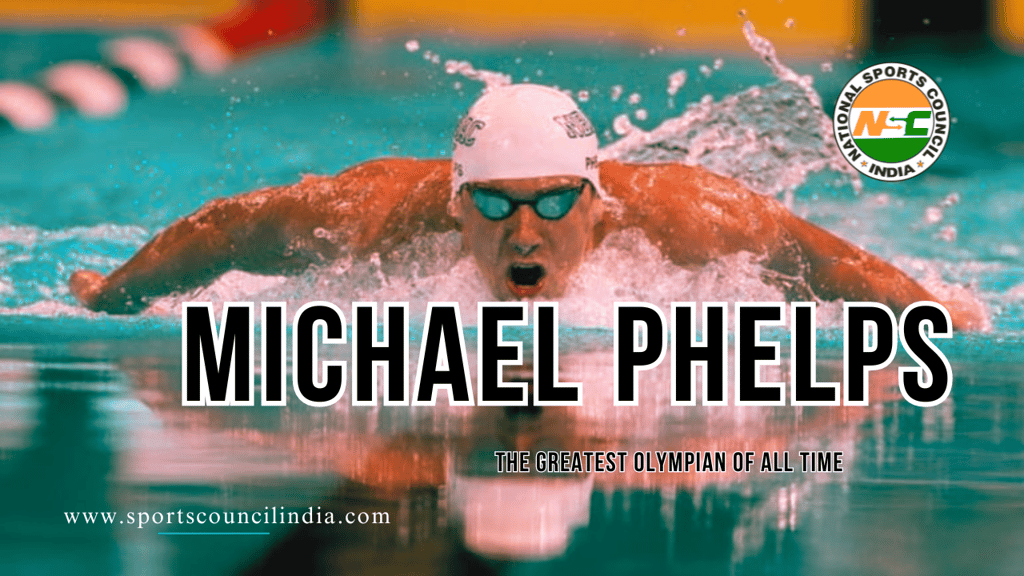Michael Phelps: The Greatest Olympian of All Time
8/7/20245 min read


Early Life and Passion for Swimming
Michael Fred Phelps II was born on June 30, 1985, in Baltimore, Maryland, to Michael Fred Phelps and Deborah Sue "Debbie" Phelps (née Davisson). He is the youngest of three children. His mother, Debbie, was a middle school principal, and his father, Fred, was a state trooper. The Phelps family faced challenges early on, including the divorce of his parents when Michael was nine years old. Despite the familial struggles, Debbie Phelps played a crucial role in providing a supportive environment for Michael and his sisters, Hilary and Whitney.
Michael's introduction to swimming came at the age of seven. His sisters, who were both competitive swimmers, influenced his early interest in the sport. Swimming was initially suggested as a way for Michael to release his energy, particularly since he was diagnosed with Attention Deficit Hyperactivity Disorder (ADHD). Little did anyone know that this suggestion would be the beginning of an extraordinary journey.
Early Training and Success
Under the guidance of coach Bob Bowman, who would become a significant figure in his career, Michael's potential was quickly recognized. Bowman’s disciplined and meticulous approach to training suited Michael’s developing talent. By the time he was 10, Michael held a national record for his age group in the 100-meter butterfly. This was just the beginning of a series of record-breaking performances.
First Olympic Experience: Sydney 2000
At the age of 15, Michael Phelps qualified for the 2000 Sydney Olympics, making him the youngest male to make a U.S. Olympic swim team in 68 years. While he didn’t win any medals in Sydney, his fifth-place finish in the 200-meter butterfly was a strong indicator of his potential. The experience fueled his determination and set the stage for his future successes.
Breakthrough at the 2001 World Championships
In 2001, at the World Aquatics Championships in Fukuoka, Japan, Phelps broke the world record in the 200-meter butterfly, becoming the youngest male ever to set a world swimming record at the age of 15 years and 9 months. This milestone marked his arrival on the international stage and was the first of many world records he would set in his career.
The Athens Olympics: 2004
The 2004 Athens Olympics were a defining moment for Phelps. He competed in eight events and won six gold medals and two bronze medals. His performance in Athens was nothing short of spectacular, with victories in the 100-meter butterfly, 200-meter butterfly, 200-meter individual medley, 400-meter individual medley, 4x200-meter freestyle relay, and the 4x100-meter medley relay. The two bronze medals came in the 200-meter freestyle and the 4x100-meter freestyle relay.
Phelps’s ambition to match Mark Spitz’s record of seven gold medals in a single Olympics was well-publicized. Although he fell short of this goal in Athens, his achievements were historic and cemented his status as one of the sport’s greats.
World Championships and Continued Dominance
Following Athens, Phelps continued to dominate international swimming. At the 2005 World Championships in Montreal, he won five gold medals and one silver. His versatility and ability to excel in multiple events were on full display. Phelps’s training regimen, which included long hours in the pool, a rigorous dry-land workout routine, and a high-calorie diet, was a testament to his dedication and work ethic.
Beijing Olympics: 2008
The 2008 Beijing Olympics were arguably the pinnacle of Phelps’s career. He achieved the unprecedented feat of winning eight gold medals, surpassing Mark Spitz’s record of seven golds in a single Olympics set in 1972. Phelps’s victories came in the 200-meter freestyle, 100-meter butterfly, 200-meter butterfly, 200-meter individual medley, 400-meter individual medley, 4x100-meter freestyle relay, 4x200-meter freestyle relay, and the 4x100-meter medley relay.
Each race was a showcase of Phelps’s extraordinary talent, competitive spirit, and ability to perform under pressure. The 100-meter butterfly, where he won by a mere 0.01 seconds, and the 4x100-meter freestyle relay, where the U.S. team made a stunning comeback to win, are particularly memorable.
The Legacy of Beijing
Phelps’s eight gold medals in Beijing solidified his status as the greatest swimmer of all time and arguably the greatest Olympian. His achievements were celebrated globally, and he received numerous accolades, including Sports Illustrated’s Sportsman of the Year. The Beijing Olympics were not just a triumph of athletic excellence but also a testament to the power of human potential when driven by relentless dedication and passion.
Challenges and Setbacks
Despite his success, Phelps’s journey was not without its challenges. In 2009, he was photographed using a bong, leading to a three-month suspension from competitive swimming by USA Swimming and the loss of a major sponsorship with Kellogg's. Phelps publicly apologized for his behaviour, acknowledging his mistake and committing to making better choices.
Return to Dominance: London 2012
Phelps returned to the pool with determination for the 2012 London Olympics. Although he announced that it would be his last Olympics, he aimed to end his career on a high note. In London, Phelps won four gold medals and two silver medals, bringing his total Olympic medal count to 22, the most ever by any Olympian.
His victories included the 100-meter butterfly, 200-meter individual medley, 4x200-meter freestyle relay, and the 4x100-meter medley relay. He won silver in the 200-meter butterfly and the 4x100-meter freestyle relay. Phelps’s performance in London was a fitting end to an illustrious career, and he retired as the most decorated Olympian in history.
Retirement and Struggles
Post-retirement, Phelps faced personal struggles, including battles with depression and substance abuse. In 2014, he was arrested for driving under the influence (DUI) for the second time, leading to a six-month suspension from USA Swimming and a decision to enter a rehabilitation program. Phelps’s openness about his mental health struggles has been instrumental in raising awareness and reducing the stigma associated with mental health issues in athletes.
Comeback and Final Farewell: Rio 2016
After addressing his personal issues, Phelps made a remarkable comeback, returning to competitive swimming with renewed focus. He qualified for the 2016 Rio Olympics, where he served as the captain of the U.S. swim team and was selected as the flag bearer for the opening ceremony.
In Rio, Phelps added five more gold medals and one silver to his collection. His victories came in the 200-meter butterfly, 200-meter individual medley, 4x100-meter freestyle relay, 4x200-meter freestyle relay, and the 4x100-meter medley relay. He won silver in the 100-meter butterfly. Phelps’s performance in Rio, highlighted by his emotional win in the 200-meter butterfly, was a testament to his resilience and enduring talent.
Life Beyond the Pool
Since his final retirement, Michael Phelps has focused on various endeavours, including his work with the Michael Phelps Foundation, which promotes water safety, healthy living, and the pursuit of dreams. The foundation’s programs, such as “I'm” and “Level Field Fund,” aim to provide children with access to swimming and opportunities to excel in sports.
Phelps has also been an advocate for mental health, using his platform to share his experiences and encourage others to seek help when needed. His advocacy work has been widely recognized and has had a significant impact on the conversation around mental health in sports.
Legacy and Impact on Swimming
Michael Phelps’s legacy extends far beyond his record-breaking medal count. He has inspired generations of swimmers and athletes with his dedication, work ethic, and relentless pursuit of excellence. Phelps’s contributions to swimming have revolutionized the sport, setting new standards for what is possible.
His openness about his mental health struggles and his efforts to raise awareness have also made a profound impact, helping to change perceptions and encourage dialogue around mental health issues. Phelps’s story is one of extraordinary achievement, resilience, and the power of the human spirit.
Conclusion
Michael Phelps’s journey from a young boy with ADHD to the greatest Olympian of all time is a story of talent, dedication, and perseverance. His achievements in the pool are unparalleled, but it is his resilience in the face of personal challenges and his commitment to giving back that truly define his legacy. As he continues to inspire and make a difference, Michael Phelps remains a symbol of what can be achieved with passion, hard work, and the courage to overcome adversity.
